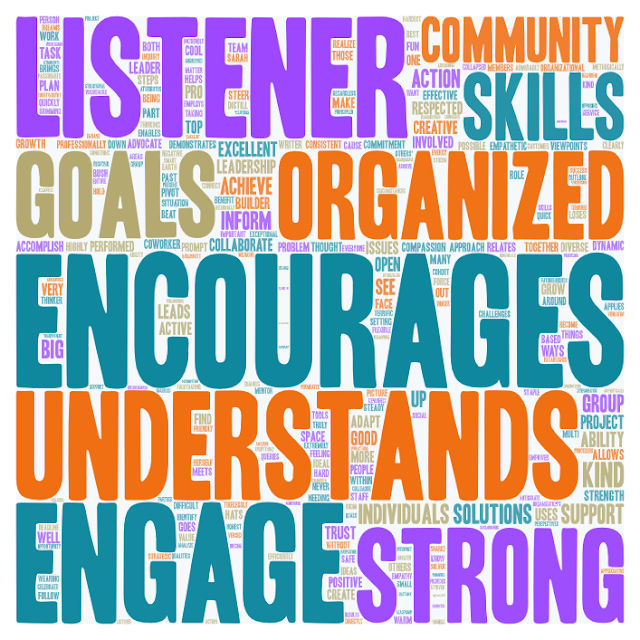Peer and Supervisor Feedback

Those of us who have taken on leadership positions should receive consistent feedback from our peers, our supervisors, and clients/students/consumers that our organization serves. Recently, I had the opportunity to collect such feedback and it truly stopped me in my tracks -- in an anonymous-response ESCI (emotional social competency inventory) assessment, I got an insight into how my past and present colleagues view me as a leader. After what has been a difficult year-plus professionally -- seeing 100% turnover twice in two years in our small nonprofit staff, including an abrupt departure by our Executive Director, going through an over 10-month span without permanent organizational leadership, and now adapting to new permanent leadership -- reading what these colleagues of mine think about me brought me to tears. Genuine, happy tears. I am so thankful for these incredible mentors, coworkers, volunteers, and community leaders who see so much value in me....

